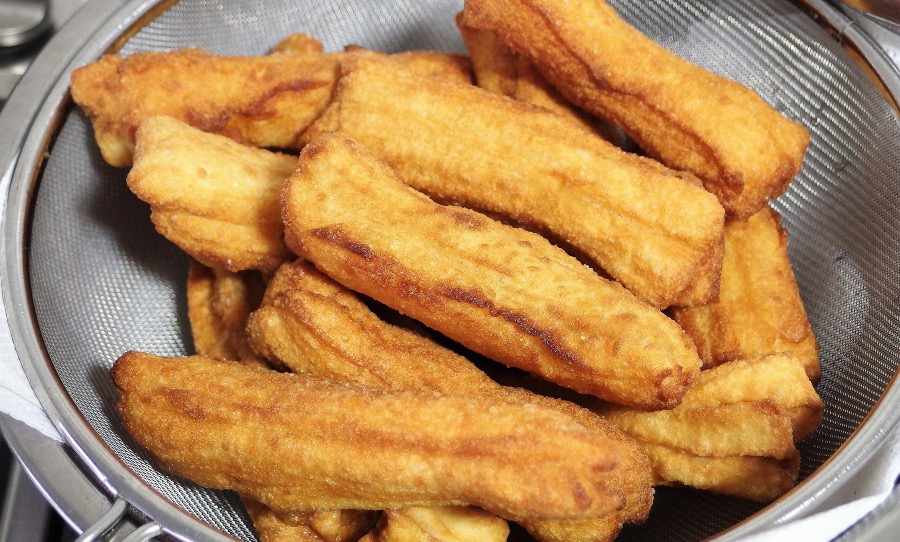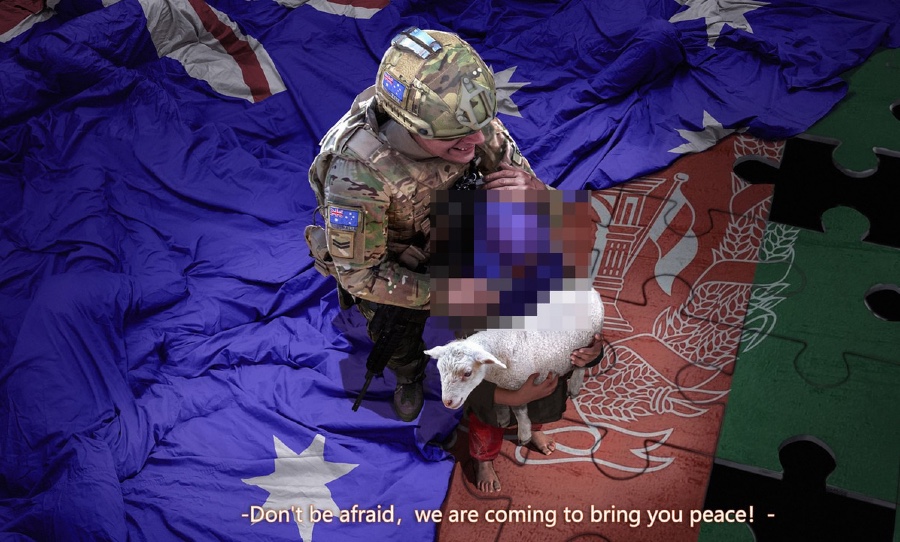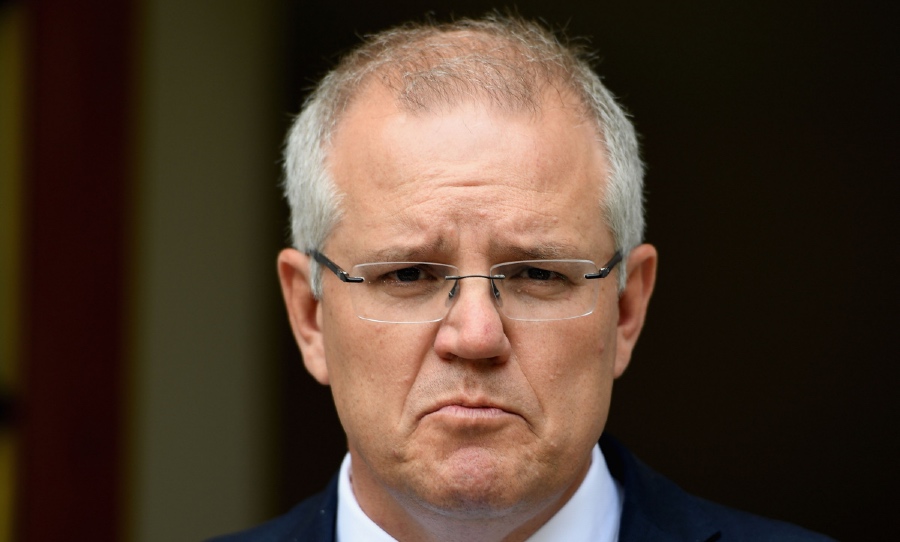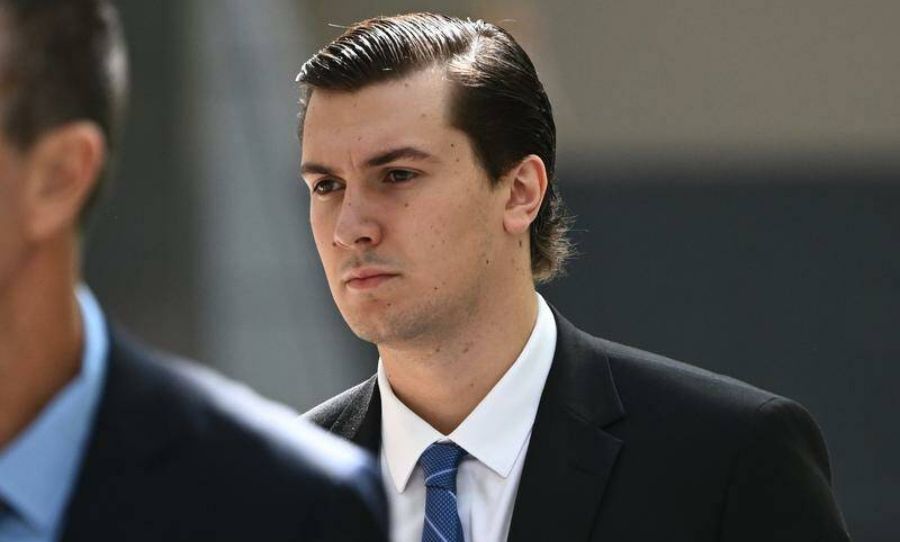Following a rocky few weeks between China and Australia, Chinese media has branded Scott Morrison with the ultimate diss.
Scott Morrison‘s relationship with China is seemingly off the mend, after a state-owned news outlet recent called him a “Lao Youtiao” (老油条) – which roughly translates to “old fried dough stick” or “old fritters”.
The term has a double-edged meaning, referring to someone who’s a ‘slick customer’, lazy, untrustworthy, slippery, ass-kissing, and really, anyone who’s being an all-around dickhead.

The article, published in 21CN, slams ScoMo for his ‘two-faced’ approach to diplomacy between China and the US and takes aim at his flippant claims that the relationship is “mutually beneficial”. It comes after Morrison recently made international headlines for demanding that China apologise over an official government spokesperson tweeting a “repugnant” war crime meme.
“In fact, people with a discerning eye can see that Morrison’s neurotic performance is nothing but a trick of an “old fritters” politician—for political gain, he does everything he can; sometimes it’s like a slick snake that has holes in it,” a translated version of the 21CN article reads.
“Not decent anymore. Behind this, there are factors that stick to the Cold War mentality and ideological prejudice, and there are also considerations of flattering the United States and seeking political self-interest.”
China state TV have labelled Morrison as a 老油条 (Lao Youtiao) an “old fried dough stick”. A nickname for someone who is a lazy manipulator, insincere, two faced, likes to blame others and sucks up to the boss https://t.co/FBq7kwmult pic.twitter.com/nRuaPl6Fzy
— Michael | 麦克儿 (@mpwoodhead) December 6, 2020
The article even refers to some Aussie content, including the Logie award-winning series, Utopia.
“While attacking and discrediting China, while trying to make money from China-is Morrison out of mind? This is “similar in the same way” to the scene in the popular Australian drama “Utopia”,” the article describes.
“In the play, after several Australian officials discussed the [defence] budget, they came to a contradictory conclusion: “Almost 30 billion Australian dollars are spent every year to protect trade routes with China, so as not to be threatened by China.”
Mmmm 🤔Obviously there’s a leak in Canberra, how the hell could the Chinese know such sensitive information? #Baffling #auspol #DuttonFail #MorrisonFires #MorrisonHoliday #MerryCrisis pic.twitter.com/A5IX6NxhwM
— 💧Jeepman🔥🚗 (@Bad_cyclist) December 6, 2020
Tensions between Australia and China hit near boiling point last week, after a Chinese foreign ministry spokesman, Zhao Lijian, tweeted a computer-generated image that purported to show an Australian soldier cutting the throat of a child in Afghanistan.
ScoMo demanded that Twitter delete the post, which was shared after the Chinese Government joined Russia last week in condemning Australia over recent reports which accused the ADF special forces of committing 39 war crime murders in Afghanistan.
“It is utterly outrageous and cannot be justified on any basis whatsoever,” Morrison said in a recent video regarding the Twitter image. “It is deeply offensive to every Australian. Every Australian who has served in that uniform.”
“The Chinese government should be totally ashamed of this post,” he continued.

However, only less than a week later, Morrison appealed to the Chinese Government to clear the way for high-level talks. These had been paused earlier this year following blowback against Australia’s early public calls for an international inquiry into the origins of the COVID-19 pandemic.
“What is most important is [that] despite the events of recent months and weeks and indeed years, Australia remains committed to constructive and open and regular dialogue at a leader and ministerial level to address the tensions are clearly there in the relationship,” he told reporters in Canberra last Thursday.
“It’s in our interest to do that, it’s in the Chinese government’s interest to do that. We remain open to do that. We will be patient. We will continue to be clear. Our national interests have been clearly articulated and the Australian government’s position on those is clearly understood.”



